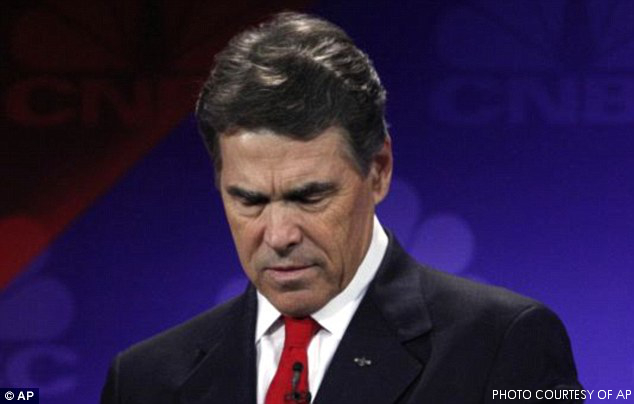
The political candidates can’t seem to stop self-destructing themselves. Last Monday, Romney committed another gaffe when he said at a private fundraiser in Boca Raton, Florida that the 47 percent of Americans who do not pay income taxes are dependent on government are not important to him in his election. His assumption was that those voters will likely vote for Obama.
According to American Heritage Dictionary, a gaffe is a clumsy social error or a blatant misjudgement. In the world of politics, politicians commit gaffes often when they unintentionally tell the truth about themselves or reveal their real stance on issues, often embarrassing themselves.
This is not the first controversial remark by Romney. Earlier remarks like “borrow money from your parents” and “corporation are people my friends” has given Romney a somewhat elitist image to many Americans– especially among moderate voters.
Romney is not alone. Our Vice President Joe Biden has made many errors in his speeches. Once at an event in Danville, Va, he said to a crowd, “We can win again in North Carolina.” The real highlight however was the comment he said about Mitt Romney and wall street saying “Romney wants to let the — he said the first 100 days — he’s gonna let the big banks once again write their own rules. Unchain Wall Street,” “They gonna put y’all back in chains.”
The memorable gaffe by Obama last presidential election was his “clinging to guns” statement when he unintentionally offended some working class people in the Midwest.
This past presidential election has also been hilariously marked by the many gaffes from the primary candidates. Americans can’t forget about Herman Cain’s Libya interview or Perry’s failure to name three administrations he get rid of at the Republican primary debate.
Why do politicians mess up so much even with a campaign advisors? The reality is, being a politician and a campaigner at times can be an overwhelming job
It takes much effort to appeal to all audiences. While Romney’s insensitive gaffe was careless and stupid, what else could he have said at a fundraiser in golf course rich Boca Raton, Fl. The question is, did the multi millionaires want to hear Romney speaking of providing welfare to the poor and middle class. Romney, although technically part of the so called “1 percent himself, had no other choice. When romney speaks at an event full of minorities or working class resident, he knows to appeal to the masses by giving a more populist message talking about fixing the economy for them.
In a sense it is similar to Barack Obama in the 2008 election encouraging young adults at college campuses and inner city residents to register to vote since those groups tend to lean democratic and their representation in past elections were relatively low.
When there is a slip-up, politicians often go on the defensive covering up their mistakes to prevent tarnishing of their supposedly clean cut image. “I meant what I said”, “What I was trying to say”, some may even go as far to say, “I never said that” often when their actions contradict their political ideology.
So how are political candidates able to escape the negative effects of slip-ups? Simply look to the news media. Whether they say it or not, media organizations either lean to the left or right of the political spectrum. An exclusive interview is a strategic opportunity to cover-up or soften their mistakes.
Most news channels have an audience leaning towards one party and despise the candidate of their opposite party. Take Fox News and MSNBC for example. Independent voters, many who are alienated by the partisan views of those networks. are an important voting bloc in elections often deciding elections. These voters are people who do not lean for either party and they make up on average around 10 percent of the electorate.
So why are political gaffes such a target for mockery? Gaffes are often the source for mockery, especially on late night comedy shows. The Daily Show with Jon Stewart, Late night with Conan O’Brien, Saturday Night Live, the Colbert Report and Jay Leno all are known for their constant parodies on their shows.
A memorable parody from the 2008 presidential election was the skit on Saturday Night Live, where comedians Tina Fey and Amy Poehler were mocking Vice Presidential candidate Sarah Palin and Democratic primary candidate Hillary Clinton.
Will the 47% of Americans on Welfare comment impact Romney’s chance of reelection? According to New York Times, most political gaffes do not help or hurt a political candidate.
Based on a chart from a online pollster, Obama “clinging to guns” and 57 states gaffe did not make a dent in his chances for election in 2008. This election cycle, his “you didn’t build that on your own” statement at his fundraiser did not change the direction of this election.
Romney’s “corporations are people my friends” and “the private sector is doing fine” gaffes also did little harm to his chances for reelection. In the end, reckless gaffes hardly factor into a candidate’s chances for reelection.
Does Romney have a chance to recover the slide since the convention? Currently, the election is a little over a month away, so time is running out for both candidates to make a major change to the outcome. However, there is still time for him to recuperate. There are still three presidential debates where
he can renew his image.
Fallout from the Obama administration over domestic and foreign affairs is always a major possibility during this election. To win the election, the Romney campaign needs to ensure that their candidate is appealing to the masses and preventing insensitive gaffes.

Leave a Reply